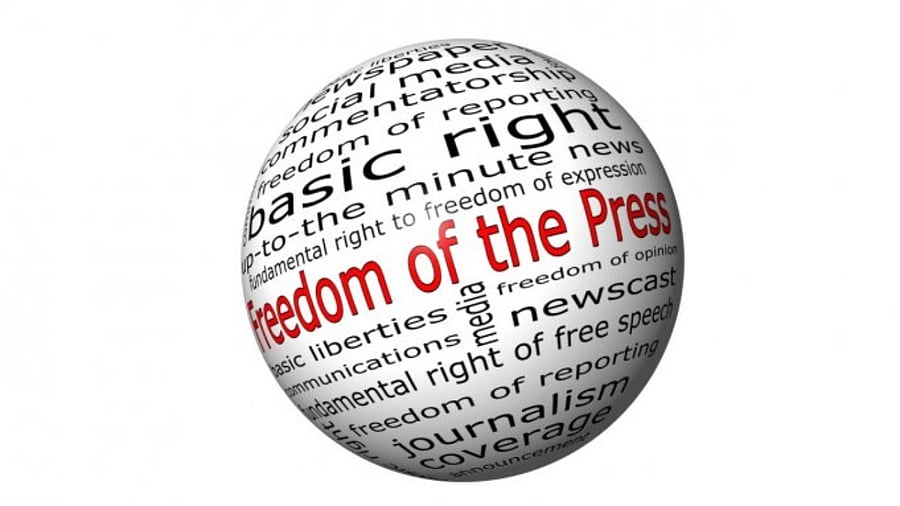
India slipped further to 161st position in the World Press Freedom Index from last year's 150 rank out of 180 countries, a report by a global media watchdog Reporters Without Borders said on Wednesday. In 2021, India was ranked 142.
Except for Bangladesh (163), Myanmar (173) and China (179), all other neighbours have a better rank than India -- Bhutan (90), Nepal (95), Sri Lanka (135), Pakistan (150), Afghanistan (152).
Interestingly, according to the index released on World Press Day, Pakistan and Afghanistan have improved their rankings from 2022 from 157 and 156 respectively.
The ranking is based on five categories -- political, legislative, economic, sociocultural and safety of journalists. India was positioned 169 in political indicators while it was 144 in legislative, 155 in economic, 143 social indicators and 172 in safety of journalists.
Also Read | Landmark ruling, a win for media freedom
"The violence against journalists, the politically partisan media and the concentration of media ownership all demonstrate that press freedom is in crisis in “the world’s largest democracy”, ruled since 2014 by Prime Minister Narendra Modi, the leader of the BJP and the embodiment of the Hindu nationalist right," the report said.
Responding to the report, Delhi Union of Journalists said in a statement, "attacks against independent media and independent journalists have increased sharply in recent years. These range from intimidation to physical and 'legal' attacks that misuse the law. Trolling, particularly of women journalists, is merciless. Many journalists are being harassed by arbitrary filing of cases and even arrests for doing their job."
Norway remained on top for the seventh consecutive year in the ranking followed by Ireland, Denmark, Sweden and Finland. The United Kingdom was ranked 26 while the United States was at 45.
"Originally a product of the anti-colonial movement, the Indian press used to be seen as fairly progressive but things changed radically in the mid-2010s, when Modi became prime minister and engineered a spectacular rapprochement between his party, the BJP, and the big families dominating the media," the report claimed.
The report added, the prime example is "undoubtedly the Reliance Industries group led by Mukesh Ambani, now a personal friend of Modi’s, who owns more than 70 media outlets that are followed by at least 800 million Indians”.
"Similarly, the takeover of the NDTV channel at the end of 2022 by tycoon Gautam Adani, who is also very close to Narendra Modi, signalled the end of pluralism in the mainstream media. Very early on, Modi took a critical stance vis-à-vis journalists, seeing them as “intermediaries” polluting the direct relationship between himself and his supporters. Indian journalists who are too critical of the government are subjected to all-out harassment and attack campaigns by Modi devotees known as bhakts," it claimed.

